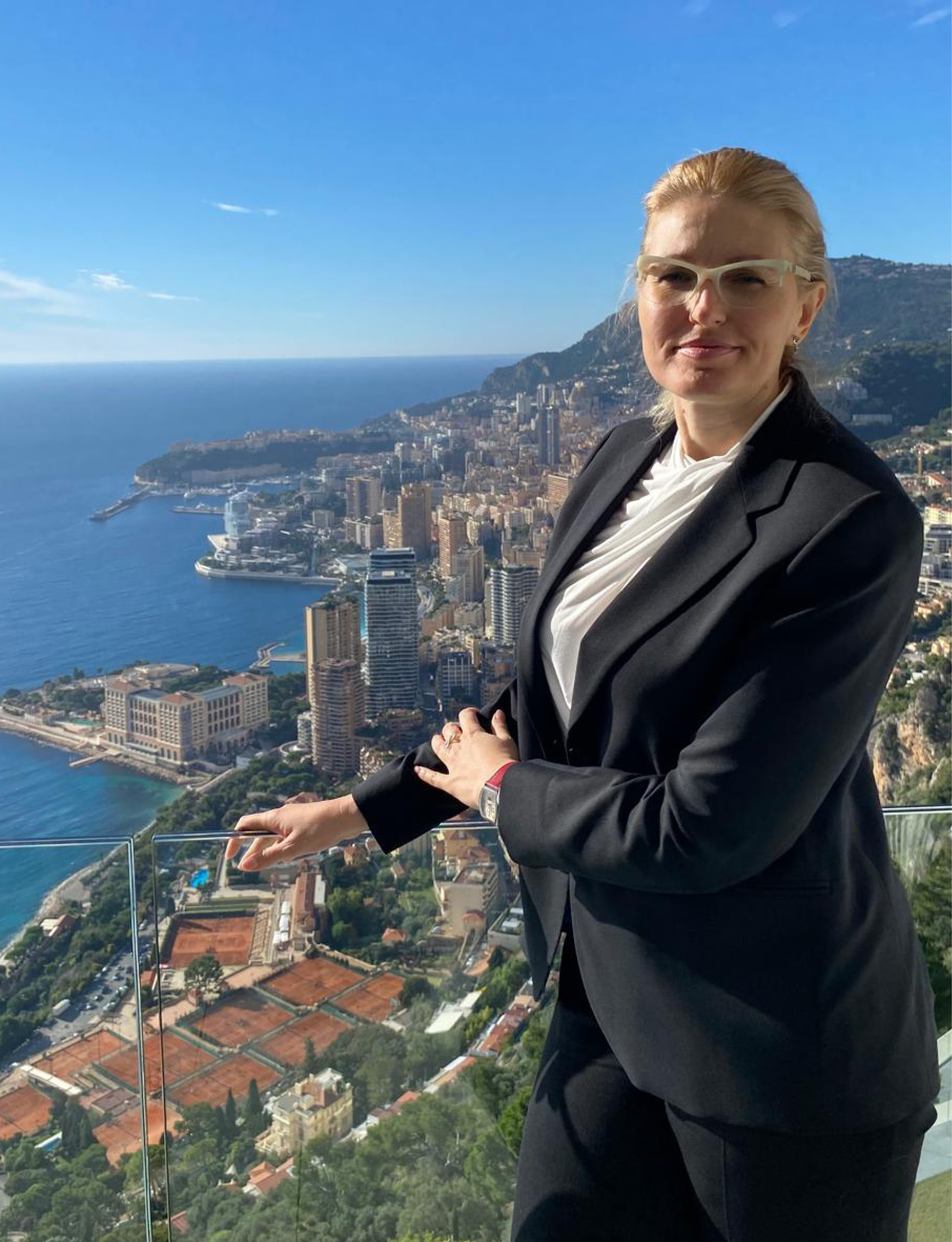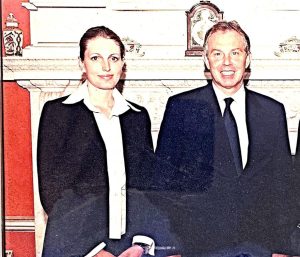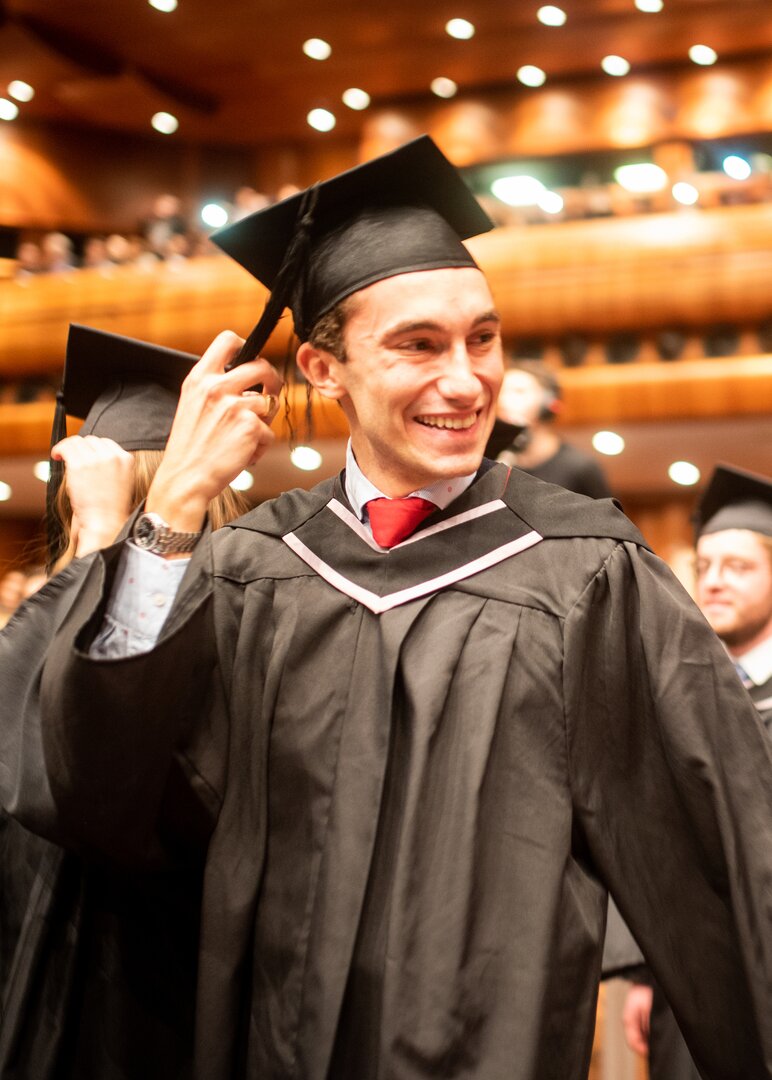


An incredible journey from post-Soviet Kyrgyzstan, via Oxford University, to her current role as Glion’s Academic Dean… the inspirational backstory of Dr. Antonina Santalova was just begging to be told. In this exclusive feature, we finally tell it.
To most Western observers, the collapse of the Soviet Union was seen as an unalloyed good. It marked the end of the Cold War; even the ‘End of History’ as one noted political scientist posited at the time.
But such seismic change felt quite different to those ‘on the ground’ in the 15 Soviet Socialist states which had constituted the USSR. They included Kyrgyzstan, one of five Central Asian ‘stans’ that were famous for their very multicultural environments.

“The collapse of the Soviet Union in the 1990s was a wild time for my country,” explains Antonina Santalova. “When the union collapsed, economic wellbeing of the general population declined overnight. The decades of a planned economy were over, while there was no knowledge of how to build an open, market economy!”
Into this void stepped a series of oligarchs, who used their wiles to take financial control of newly-privatized industries – a story that was repeated across the former Soviet Union.
For Antonina, opportunities of a more wholesome nature quickly emerged. The key factor behind this was a passion for education that had been instilled in her from birth.

Languages matter
“Education was one of the cornerstones of the Soviet system; in fact it had been the only social lift available during the Soviet period,” she continues. “Central Asia was a region with an almost 100% literacy rate, which reflected the tremendous value given to education.”
After the collapse of the Soviet Union, it wasn’t just literacy that made the difference for the population of the newly born state; it was a command of languages that included the all-important English.

“Although my family tongue was Russian, I was one of the few people in my circle who spoke English, because my mother had insisted that I attend one of the best schools in the country, where I concentrated on studying English,” she says. “Right from an early age my mother and father had drilled into me the importance of education.”
And little wonder, given the family’s history. To escape Stalin’s repressions in the European part of Russia, Antonina’s great-grandfather, his wife and their three children had set off for Central Asia. After a hazardous and near-fatal journey they made it to Kyrgyzstan, where the great-grandfather’s education enabled him to land a role as accountant to a newly established collective farm, becoming effectively number two in the managerial structure.
Kyrgyz civil society takes hold
Fast-forward to post-Soviet Kyrgyzstan and the path to survival required more than collective farming. It would take knowledge to make a positive contribution to creating a new civil society from the ashes of the former structure. Responding to this need, Antonina’s enthusiastic commitment to education envisioned academic plans which at the time looked like they might never be realized.
“While my eldest brother managed to complete his higher education in Kiev, Ukraine, my dreams to study at Moscow State University failed as soon as the USSR collapsed. After the abolition of Soviet currency there was no way that my family could afford sending me to a foreign country to study,” she notes.
“Kyrgyz national state university (pictured below) was a highly regarded academic institution, but with independence gained, higher education was free no longer. I did not want to put the financial burden of funding my education on my family. However, becoming a winner of the Republican Olympiad academic competition would guarantee free education at the university. So I decided to compete in the Republican Olympiad in the English language and literature contest – and I won, which meant my education would be free!”

While earning a Bachelor and Master’s in Linguistics and a MSc in Economics at the university, Antonina’s English skills landed her a role as an interpreter for the First Lady of Kyrgyzstan’s first President, and a teacher and project manager’s role at her charitable foundation.
“It was a brilliant opportunity to make some change to children’s lives. I would help talented children from poor backgrounds to receive English language and IT training.”
Later Antonina worked at the Ministry of Education as an Education Development Officer, providing a rare opportunity to help launch fundamental reforms in education backed financially by the Asian Development Bank.
“Institutions that took decades to get established in the West, had to be created virtually overnight in the post-Soviet states. It was amazing to be part of that process. Frightening also. But fascinating. It was like being inside a big laboratory – everything was mushrooming. We had the Americans involved with the stock exchange project, and then later there was Middle Eastern capital interested in investments in education. My heart was always on the education side, though.”

“Institutions that took decades to get established in the West, had to be created virtually overnight in the post-Soviet states. It was amazing to be part of that process. Frightening also. But fascinating. It was like being inside a big laboratory – everything was mushrooming. My heart was always on the education side, though.”
Dr. Antonina Santalova
The lure of the ‘dreaming spires’
Leading the project to deliver Kyrgyzstan’s first national textbooks for schools, to pilot per capita funding, and to modernize the professional development of educators, inspired Antonina to further her own education. After serving as the Country Director in an educational project funded by the US government, she put on the hat of a student again. And not just any student, but a Master’s degree student at one of the world’s premier seats of learning: Oxford University.

Having been awarded the UK Department for International Development scholarship to the university, Antonina studied for an MPhil in Comparative Social Policy. Then, after graduating, she was accepted into Oxford’s doctoral program in Social Policy. A few years later she was awarded the Doctor of Philosophy degree.
“Oxford… my gosh. I arrived having made social policy back home; but then you come to Oxford and it’s very rigid, very academic, very traditional. So I had to learn a lot, and having two young children with me wasn’t easy. In classes we talked all the time about ‘evidence-based policy’ and I was remembering what I had just lived through – there was no time to collect evidence; it was just ‘we need our own national textbooks, let’s do it!’”
Despite the immense culture change, Antonina soon adapted to life at Oxford. “Every day I was there, I never lost the thrill of thinking ‘wow, I’m at Oxford’ and also looking at the professors as if they were gods and goddesses. But what I’ve found during my life is that the smartest people can be among the most vulnerable ones in terms of interpersonal relations and dismissive in their attitudes toward others. I try to take an interest in everybody, no matter what their position, because that’s how I think we learn – from compassion, from trying to understand other people and the way they think.”
Making a contribution

In the years that followed, Oxford University transformed from place of learning to a place of employment, as Antonina took on a number of positions both during and after her doctoral studies. She also founded Oxford Study Ltd a startup endorsed by the university that helps students in applying to UK universities.
Upon leaving the ‘city of dreaming spires’ in early 2022 Antonina was appointed Dean of the Doctorate of Business Administration Program at the US-based University of Business Innovation and Sustainability, before joining Glion as an Academic Dean in April 2023.
In addition to advancing the excellence of Glion’s academic programs, a major function of Antonina’s role is enhancing our research activities. To this end, she has established the Glion Research & Innovation Center (GRIC), with a mission to build and develop our faculty’s research capabilities, expand our research network to engage with the broader academic and non-academic communities and industries.
“It was essential for Federal Swiss Accreditation to demonstrate that Glion had the capacity and expertise required to ensure that our research would have a significant impact within industries and communities,” Antonina says.
Research Fellows are also being appointed, including Executive Master’s graduate and friend of The Insider Simon Joseph.
“As a school, we already make a significant contribution to the industry through our program’s graduates, who perform productive roles around the world. Now it’s about broadening our impact by advancing the industry through research and analysis. That’s a totally different mindset.”

At the same time, Antonina is looking to inspire and intellectually stimulate Glion students via the Dean’s Series of guest lectures. The most recent to take place featured Dr. Harley Krohmer, a Professor from the University of Bern, who presented his study of building brand loyalty and attachment among ultra-high-net-worth (UHNW) individuals. His insights offered students a rare perspective on luxury consumer behavior grounded in not only academic research but real-world application.
“We have some catching up with a few institutions that are ahead of us in their research journey, but at the same time I believe Glion has certain advantages,” Antonina concludes.
“We are boutique, which means we can be nimble and more flexible than others. I would also say that we have a more interesting student body from diverse cultural backgrounds, who bring a wide range of practical experience and academic achievements to the school. You see this with the questions that get asked at our Dean’s Series guest lecturers. The students constantly surprise us with the perspectives they bring.”
It seems that after the turmoil of a country in flux, followed by the very traditional surroundings of Oxford University, Dr. Santalova has found an ideal challenge in taking Glion to the next level academically!
Photo credits
Map image: omersukrugoksu/Getty
Kyrgyz yurt: WITGOAWAY/Getty
Develop the skills to succeed
Our undergraduate and graduate degrees are tailored to the modern workplace, providing a perfect balance of hard and soft skills accompanied by real-world professional experience.
















